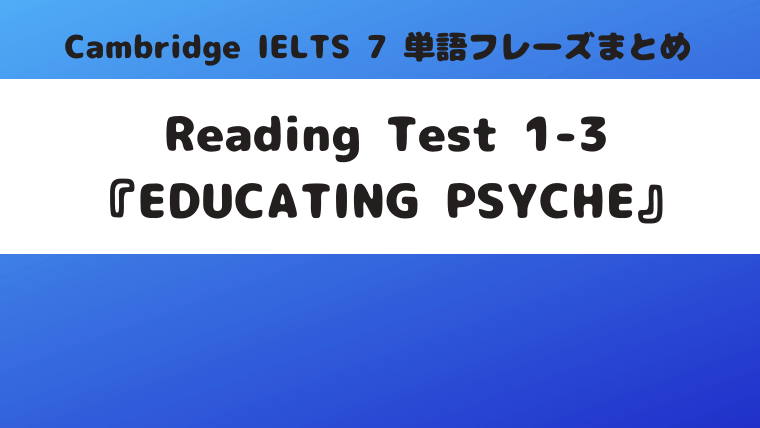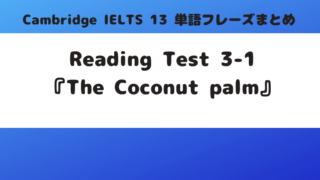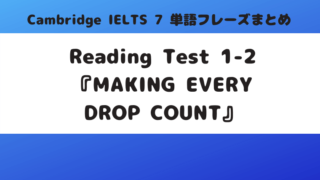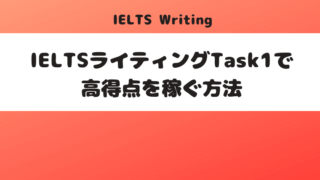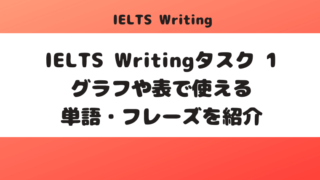「Cambridge IELTS 7」Reading Test 1-3『EDUCATING PSYCHE』(p.26)の単語・フレーズをまとめました。
私がIELTS Readingの単語・まとめを行う理由は「Cambridge IELTS Reading単語・フレーズまとめ」からご覧ください。
Reading Test 1 Passage 3:EDUCATING PSYCHE
- psyche
noun /ˈsaɪ.ki/
the mind, or the deepest thoughts, feelings, or beliefs of a person or group
〘フォーマル/専門〙 心理, 精神
(実践IELTS英単語3500:2824) - radical
adjective /ˈræd.ɪ.kəl/
believing or expressing the belief that there should be great or extreme social or political change
1 根本的な, 抜本的な
2 <人・団体が> 改革派の, 革新的な
3 <政治思想などが> 過激な, 急進的な
4 重要な, 重大な
5 米 〘インフォーマル〙 すごくいい, めちゃくちゃ楽しい
(実践IELTS英単語3500:2172) - unconscious
adjective /ʌnˈkɒn.ʃəs/
・in the state of not being awake and not aware of things around you, especially as the result of a head injury
・An unconscious thought or feeling is one that you do not know you have
1 意識を失った, 意識不明の
2 <感情などが> 無意識の
→ subconscious
3 unconscious of something
<…>に気づいていない
4 <行為が> 無意識の
(実践IELTS英単語3500:3340) - durable
adjective /ˈdʒʊə.rə.bəl/
able to last a long time without becoming damaged
1 耐久性のある
2 永続的な, 長期的な, 恒久的な
(実践IELTS英単語3500:2326) - perceive
verb /pəˈsiːv/
・to come to an opinion about something, or have a belief about something:
・to see something or someone, or to notice something that is obvious:
1 〘書き言葉〙 <事柄> をとらえる, 理解する
2 〘フォーマル〙 <わかりにくい事など> に気づく
→ perceptive
3 〘専門〙 <物> を目で知覚できる
(実践IELTS英単語3500:1265) - peripherally
1 補助的に
2 (町・国などの) 周辺(部)に
(実践IELTS英単語3500:) - typeface
(活字の) 書体, 活字面 同意 font - mannerism
noun /ˈmæn.ər.ɪ.zəm/
something that a person does repeatedly with their face, hands, or voice, and that they may not realize they are doing
1 《C》 (話し方・しぐさなどの) 癖, 特徴
• He has the same mannerisms as his father.
彼には父親と同じ癖がある.
2 《U》 (美術・音楽・文学などでの) マンネリズム ((型にはまった表現形式を使うこと))
3 Mannerism 《U》 マニエリスム ((バロック様式に移行する前の16世紀のイタリアの美術様式))
(実践IELTS英単語3500:3388) - auditorium
noun /ˌɔː.dɪˈtɔː.ri.əm/
・the part of a theatre, or similar building, where the people who are watching and listening sit:
・mainly us a large public building where meetings, concerts, etc. are held
1 観客席
2 講堂, 公会堂
(実践IELTS英単語3500:2415) - elusive
adjective /iˈluː.sɪv/
difficult to describe, find, achieve, or remember
1 人目につかない, 捕まえにくい
2 <性質・考えなどが> わかりにくい, とらえどころのない
3 <成功・優勝などが> 達成しがたい, 手に入れにくい
(実践IELTS英単語3500:2622) - readily
adverb /ˈred.əl.i/
quickly, immediately, willingly, or without any problem
1 すぐに, 簡単に, 容易に
2 快く, 進んで, あっさり
(実践IELTS英単語3500:1044) - relive
verb /ˌriːˈlɪv/
・to remember clearly an experience that happened in the past:
<過去の経験など> を追体験する, 思い出す - psychodrama
1 《C》 心理劇
2 《U》 (精神医学で) 心理劇療法 ((演技を用いた心理療法)) - attribute
noun /ˈæt.rɪ.bjuːt/
a quality or characteristic that someone or something has
(優良・有益と考えられる) 特性, 特質
(実践IELTS英単語3500:1748) - counterproductive
逆効果を招く - extreme
adjective UK /ɪkˈstriːm/ US /ɪkˈstriːm/
・very large in amount or degree:
・very severe or bad:
・Extreme beliefs and political parties are considered by most people to be unreasonable and unacceptable:
1 《名の前でのみ》 (貧困・困難などが) 極度の, (注意が) 細心の
2 <状況・苦しみなどが> 過酷な, 非常に厳しい
4 《名の前でのみ》 先端[末端]の, 最果ての
同意 far
5 《名の前でのみ》 (スポーツが) 過激な, エクストリームな
(実践IELTS英単語3500:321) - tensing muscles
力こぶを作る(筋肉が緊張している、かたくなっている) - fatigue
noun /fəˈtiːɡ/
・formal extreme tiredness:
・specialized engineering weakness in something, such as a metal part or structure, often caused by repeated bending
1 (心身の激しい) 疲労, 疲れ
2 <<名詞の後ろに付いて「…疲れ」などを意味する>>
3 〘専門〙 (材質の) 疲労
4 fatigues 《常に複数形で》 (兵士の) 作業服
(実践IELTS英単語3500:1829) - suggestopedia
サジェストペディア (suggestopedia または suggestopaedia) は1960年代から1990年代にかけてブルガリアで開発された学習理論および教授法。 人間のコミュニケーションにおけるサジェスチョンの働きを医学的に研究するサジェストロジーと呼ばれる学問領域から派生した。 - consciousness
noun /ˈkɒn.ʃəs.nəs/
・the state of understanding and realizing something:
・the state of being awake, thinking, and knowing what is happening around you
1 (知覚反応のある) 意識, 正気
2 (認識としての) 意識, 知覚
3 物の見方, 考え方
4 (物事についての) 意識, 認識
(実践IELTS英単語3500:478) - peripheral
adjective /pəˈrɪf.ər.əl/
・Something that is peripheral is not as important as something else:
・happening at the edge of something:
1 〘フォーマル〙 重要でない, 末梢(まっしょう) 的な
2 《通例名の前で》 〘フォーマル〙 周辺(部)の, 末梢(まっしょう) の
3 《名の前でのみ》 〘専門〙 (コンピュータの) 周辺(機器)の
(実践IELTS英単語3500:2546) - variant
noun /ˈveə.ri.ənt/
something that is slightly different from other similar things
1 (通例と) やや異なるもの, バリエーション
2 〘専門〙 異形 - solemnly
adverb /ˈsɒl.əm.li/
seriously and without any humour
1 まじめに, 真剣に
2 (約束などを) 固く - baroque music
バロック音楽は、ヨーロッパにおける17世紀初頭から18世紀半ばまでの音楽の総称である。この時代はルネサンス音楽と古典派音楽の間に位置する。 - preliminary
adjective /prɪˈlɪm.ɪ.nər.i/
coming before a more important action or event, especially introducing or preparing for it:
(調査・審理などが) 予備的な, (結果・契約などが) 仮の, (段階などが) 準備の
(実践IELTS英単語3500:1599) - improvise
verb /ˈɪm.prə.vaɪz/
・to invent or make something, such as a speech or a device, at the time when it is needed without already having planned it:
・making up the play, music, etc. as they perform it:
im‧pro‧vise /ˈɪmprəˌvaɪz/ [動]
1 a) 《他》 …を即席[準備なし]で行う
b) 《自》 即席で話し続ける
2 a) 《他》 <物・食事など> を間に合わせ[即席]で作る
b) 《自》 間に合わせる
3 a) 《他》 <演奏・演説など> を即興[アドリブ]で行う b) 《自》 即興[アドリブ]で演奏[演技]する
(実践IELTS英単語3500:2943) - dramatisation
《C, U》 (本・事件などの) 戯曲化[ドラマ化](したもの) - distinctive
verb /ˈdræm.ə.taɪz/
・When writers dramatize books, stories, poems, etc., they write them again in a form that can be performed.
・If someone dramatizes a report of what has happened to them, they make the story seem more exciting, important, or dangerous than it really is.
独特な, 特有な, 特徴的な
(実践IELTS英単語3500:1561) - experiment
noun /ɪkˈsper.ɪ.mənt/
a test done in order to learn something or to discover if something works or is true
1 《C, U》 (科学上の) 実験
2 《C》 新しい試み
(実践IELTS英単語3500:389) - hypnosis
noun /hɪpˈnəʊ.sɪs/
a mental state like sleep, in which a person’s thoughts can be easily influenced by someone else
1 催眠(状態)
2 催眠術
(実践IELTS英単語3500:3071) - ritual
noun /ˈrɪtʃ.u.əl/
a set of fixed actions and sometimes words performed regularly, especially as part of a ceremony
1 儀式, 祭式
→ rite
2 (日常の決まった) 習慣
同意 routine
(実践IELTS英単語3500:1638) - placebos
noun /pləˈsiː.bəʊ/
・a substance given to someone who is told that it is a particular medicine, either to make that person feel as if they are getting better or to compare the effect of the particular medicine when given to others
・something that is given to try to satisfy a person who has not been given the thing they really want
1 (新薬テストなどの) 偽薬, プラシーボ
2 気休め - capsule
noun /ˈkæp.sjuːl/
・a small container with medicine inside that you swallow
・the part of a spacecraft in which the people on it live
・specialized medical a flexible (= not stiff or fixed) structure surrounding an organ, joint, or other structure in the body
1 Image of capsule (薬の) カプセル
2 (宇宙船の) カプセル 同意 space capsule
3 (固体・液体などを入れる) カプセル
4 (植物の) 蒴(さく), (動物の) 被膜, 嚢(のう)
5 要約, 概要
→ time capsule - insist
verb /ɪnˈsɪst/
to say firmly or demand forcefully, especially when others disagree with or oppose what you say
1 a) 《自》 insist on something
b) 《他》 insist (that)
2 a) 《自》 言い張る, 絶対に譲らない
b) 《他》 insist (that)
…と言って譲らない, 強く要求する
(実践IELTS英単語3500:673) - designate
verb /ˈdez.ɪɡ.neɪt/
・to choose someone officially to do a particular job:
・to say officially that a place or thing has a particular character or purpose
1 designate somebody / something as something
<人>を<…>として指名[任命]する, <…>を<…>と指定する
2 be designated (as) something
<…>に指定される
3 <記号などが> …を示す, 意味する
(実践IELTS英単語3500:2409) - accredite
adjective /əˈkred.ɪ.tɪd/
officially recognized or approved
1 認可された, 認定された
2 (政治家などが) 正式に国を代表する
(実践IELTS英単語3500:3454) - notoriety
noun /ˌnəʊ.tərˈaɪ.ə.ti/
the state of being famous for something bad:
1 悪名(の高さ)
2 米 〘非標準〙 名声
(実践IELTS英単語3500:2553) - emulate
verb /ˈem.jə.leɪt/
to copy something achieved by someone else and try to do it as well as they have
1 …を見習う, 手本にする
2 〘専門〙 (コンピュータで) …をエミュレートする, …のように機能させる
(実践IELTS英単語3500:2752) - mediocre
adjective /ˌmiː.diˈəʊ.kər/
not very good
良くも悪くもない, 並の, 平凡な
(実践IELTS英単語3500:2892) - inadequate
adjective /ɪˈnæd.ɪ.kwət/
・not good enough or too low in quality:
・too small in amount:
・not confident enough to deal with a situation:
1 不十分な, 不適切な, 不備な
反意 adequate
2 力不足の, 劣等感を持った
(実践IELTS英単語3500:2315)
